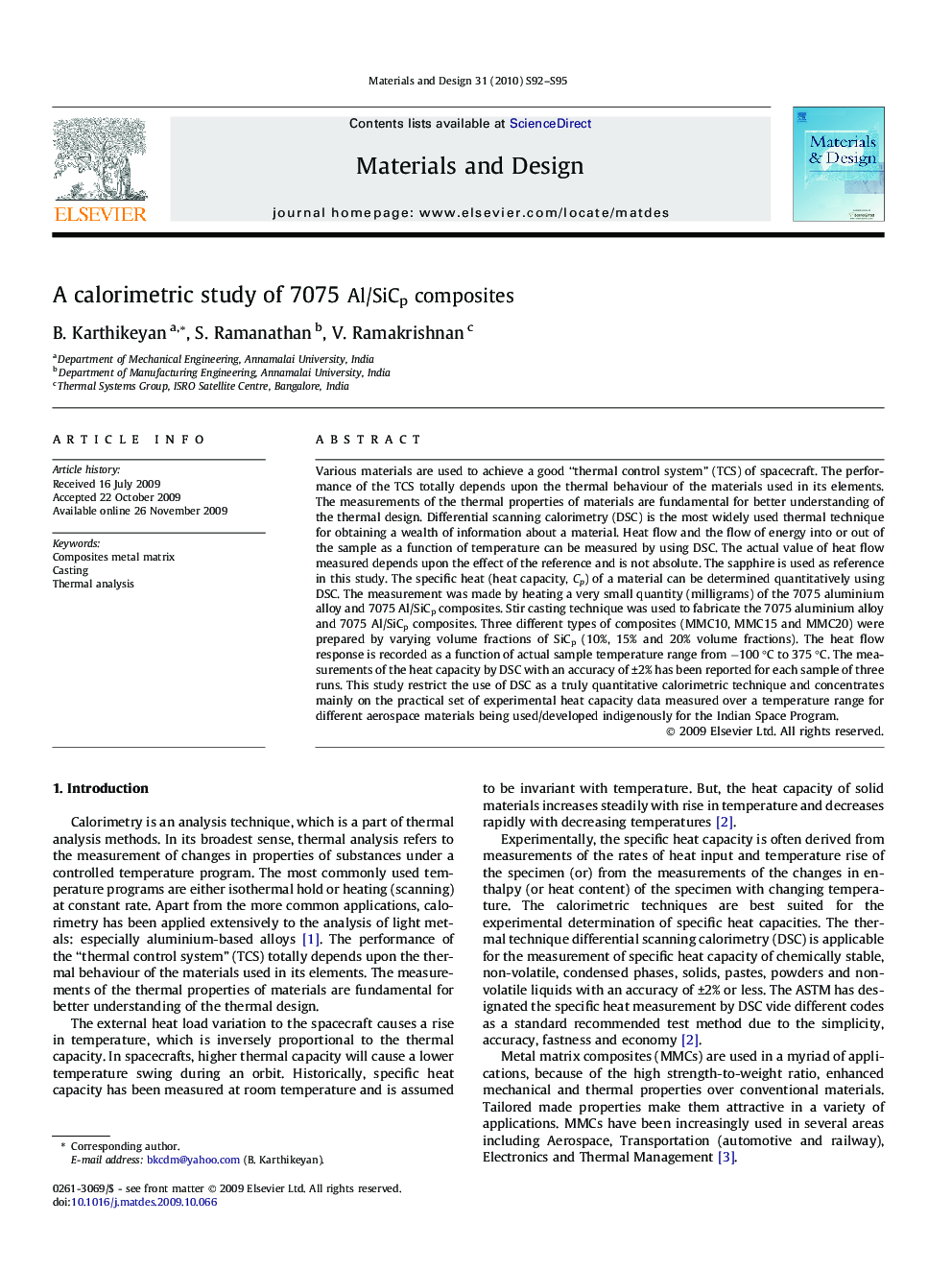| Article ID | Journal | Published Year | Pages | File Type |
|---|---|---|---|---|
| 832369 | Materials & Design (1980-2015) | 2010 | 4 Pages |
Various materials are used to achieve a good “thermal control system” (TCS) of spacecraft. The performance of the TCS totally depends upon the thermal behaviour of the materials used in its elements. The measurements of the thermal properties of materials are fundamental for better understanding of the thermal design. Differential scanning calorimetry (DSC) is the most widely used thermal technique for obtaining a wealth of information about a material. Heat flow and the flow of energy into or out of the sample as a function of temperature can be measured by using DSC. The actual value of heat flow measured depends upon the effect of the reference and is not absolute. The sapphire is used as reference in this study. The specific heat (heat capacity, Cp) of a material can be determined quantitatively using DSC. The measurement was made by heating a very small quantity (milligrams) of the 7075 aluminium alloy and 7075 Al/SiCp composites. Stir casting technique was used to fabricate the 7075 aluminium alloy and 7075 Al/SiCp composites. Three different types of composites (MMC10, MMC15 and MMC20) were prepared by varying volume fractions of SiCp (10%, 15% and 20% volume fractions). The heat flow response is recorded as a function of actual sample temperature range from −100 °C to 375 °C. The measurements of the heat capacity by DSC with an accuracy of ±2% has been reported for each sample of three runs. This study restrict the use of DSC as a truly quantitative calorimetric technique and concentrates mainly on the practical set of experimental heat capacity data measured over a temperature range for different aerospace materials being used/developed indigenously for the Indian Space Program.
